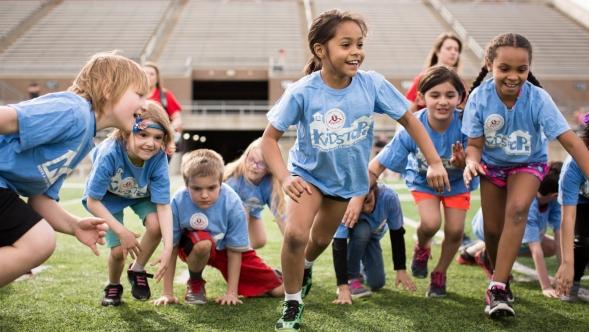“With a Little Help from My Friends – The Importance of Peer Relationships for Social-Emotional Development”

1543789622350
December 10, 2018
Positive peer relationships make critical contributions to healthy social emotional development
The Issue
Successfully navigating the social world of peers can be challenging. Children and teenagers benefit from the social and emotional support that friends offer, but they can also experience occasional social stressors and peer conflicts.
Key Findings
- Peer relationships provide a unique context in which childrenlearn a range of critical social emotional skills, such as empathy,cooperation, and problem-solving strategies.
- Peer relationships can also contribute negatively to socialemotional development through bullying, exclusion, and deviant peerprocesses.
- Universal, school-based, social emotional learning programsprovide a strong foundation for promoting healthy social emotionaldevelopment and creating positive peer cultures.
- Children experiencing peer difficulties often need additional, systematic, and intensive social skill coaching.
- Peers can be powerful forces that facilitate or alternatively undermine group programs.
Conclusion
Research points to the need to not only promote the development of critical social-emotional capacities, but also attend to and create positive peer processes to ensure that every child is able to engage in and benefit from healthy relationships at home, school, peer group, and community.
For more information and to download a copy of this brief, visit the RWJF web site.
“With a Little Help from My Friends – The Importance of Peer Relationships for Social-Emotional Development”

1543789622350
December 10, 2018
Positive peer relationships make critical contributions to healthy social emotional development
The Issue
Successfully navigating the social world of peers can be challenging. Children and teenagers benefit from the social and emotional support that friends offer, but they can also experience occasional social stressors and peer conflicts.
Key Findings
- Peer relationships provide a unique context in which childrenlearn a range of critical social emotional skills, such as empathy,cooperation, and problem-solving strategies.
- Peer relationships can also contribute negatively to socialemotional development through bullying, exclusion, and deviant peerprocesses.
- Universal, school-based, social emotional learning programsprovide a strong foundation for promoting healthy social emotionaldevelopment and creating positive peer cultures.
- Children experiencing peer difficulties often need additional, systematic, and intensive social skill coaching.
- Peers can be powerful forces that facilitate or alternatively undermine group programs.
Conclusion
Research points to the need to not only promote the development of critical social-emotional capacities, but also attend to and create positive peer processes to ensure that every child is able to engage in and benefit from healthy relationships at home, school, peer group, and community.
For more information and to download a copy of this brief, visit the RWJF web site.
Related People
Evan Pugh University Professor of Psychology and Human Development and Family Studies
Related People
Evan Pugh University Professor of Psychology and Human Development and Family Studies












